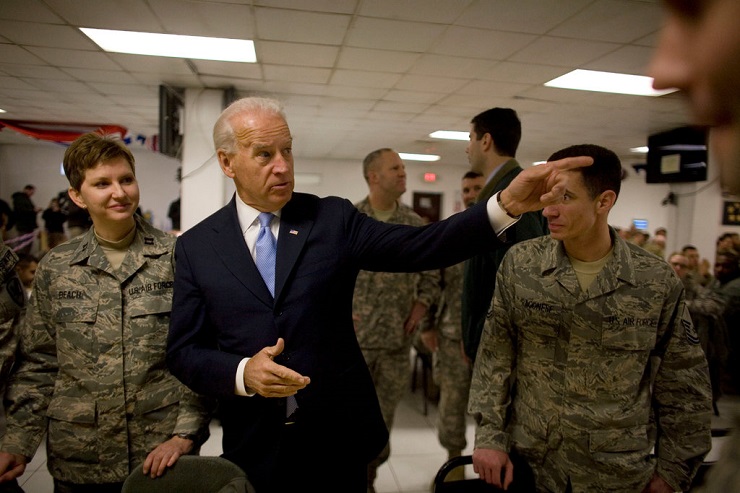While the US president, fulfilling yet another of his promises, has announced to reduce troops in Afghanistan, bringing the total number to 2500 only, it doesn’t mean that the war in Afghanistan is going to end before he leaves the White House. What we see, however, is only a temporary drawdown by an out-going president, eager to reinforce his image as the president who brought America’s longest fought war to an end. As it stands, his wish is unlikely to be granted by the US Defence establishment, which is keen to maintain an open-ended US military presence, not bound by the existing president’s election promises. As it stands, the president-elect, Joe Biden, has not made any promises with regards to quickly withdrawing from Afghanistan. He is not under pressure, and he is not facing an immediate re-election. Biden has four years to change, revise and maintain a US military presence in Afghanistan, focused on achieving core-US objectives i.e., a political set up in Afghanistan which is not Taliban dominated and has enough loopholes for the US to manipulate to its advantage.
The Purge to greatness
The current withdrawal is a result of Trump’s judgement that the Pentagon, the US “deep state”, essentially doesn’t share. It is evident from how the withdrawal was preceded by Trump’s purge of the Pentagon itself, scrapping all those who opposed his decision and replacing them with the ‘loyalists.’ As it stands, Trump’s loyalists don’t have enough time to bring American involvement to zero before Joe Biden takes over.
The purge began with the sacking of Mark Esper, Trump’s defence secretary, who was opposed to a fast-track withdrawal from Afghanistan. Esper has been replaced with Christopher Miller, the former director of the National Counterterrorism Center. Douglas Macgregor, a retired Army colonel and fierce proponent of ending American involvement in Afghanistan, has been named as a senior adviser to Mr. Miller.
Trump has thus set up a new ‘chain of command’ that would conveniently advise him to withdraw from Afghanistan and leave the Afghans to themselves.
Trump’s new ambassador to Afghanistan, William Ruger, is part of an organization which is a vocal opponent of current conflicts abroad. When asked about Trump’s purge of the Pentagon, Ruger said, “The president has had difficulty finding personnel who would faithfully execute on his preferences,” Mr. Ruger said in an interview on Friday. With the new Pentagon leadership, “the president could really cement a legacy here,” he said, adding that Mr. Trump “could be the leader who ends America’s longest war.”
The President-elect
Joe Biden, the president-elect, would however not have the luxury of these pro-withdrawal elements that Trump has installed to become a political immortal—the one who ended America’s seemingly endless and longest fought war.
For, as it stands, even after Trump’s purge, the Pentagon, as an institution, remains opposed to a quick withdrawal. The president-elect, who will be overwhelmed by the surging pandemic and other pressing domestic and international issue, will be an easy target for the US defense establishment to convince for a little longer and open-ended stay.
How the Pentagon sees Afghanistan is evident from its most recent report to the US Congress, which said that withdrawal was dangerous because core US objectives remain unfulfilled. The report said, “AQIS (Al-Qaeda in the Indian Subcontinent) routinely supports and works with low-level Taliban members in its efforts to undermine the Afghan government, and maintains an enduring interest in attacking US forces and Western targets in the region.”
The Pentagon essentially emphasized that since the Taliban aren’t fulfilling their part of the deal, the US shouldn’t either. It was this assessment that led Esper and others to oppose a quick withdrawal, leading Trump to cleanse the Pentagon of them. However, it is obvious that Trump himself will be gone soon, and the US defense establishment will not have a hard time convincing the new president to reverse the course.
As it stands, Biden is already largely in favour of leaving a string residual force in Afghanistan, consisting mostly of Special Operations Forces and ‘intelligence assets.’ He has never given any withdrawal time-lines, and he will be made to emphasize how withdrawal was always condition-based. Accordingly, if the Taliban, as the Pentagon report shows, are not seen fulfilling those conditions, the US military wouldn’t withdraw either.
“I support drawing down the troops. But here’s the problem, we still have to worry about terrorism and [the Islamic State],” Biden told Stars and Stripes in an interview in September. Therefore, if the ‘problem’ remains unresolved, the US military will continue to stay in Afghanistan as well.
Therefore, instead of an end of the war, things are most likely to get uglier under Biden presidency. The Pentagon will, of course, be helped by the NATO to prepare a good case for another surge. The NATO secretary general Jens Stoltenberg has already voiced support for the Pentagon saying, “The price for leaving the region too soon or in an uncoordinated way could be very high.”
Under Joe Biden, there are, therefore, high chances of a return to a military surge in Afghanistan. While the surge wouldn’t mean a return to the ideal of militarily defeating the Taliban, it would primarily be focused on making the Taliban fall in line with the US and denying them a dominant political control. The surge will aim to make the Taliban agree to a broad political set up.
The Taliban’s response will set the stage for the months to come. A surge in their attacks will kill any withdrawal hopes that Biden may have.
Salman Rafi Sheikh, research-analyst of International Relations and Pakistan’s foreign and domestic affairs, exclusively for the online magazine “New Eastern Outlook”.

